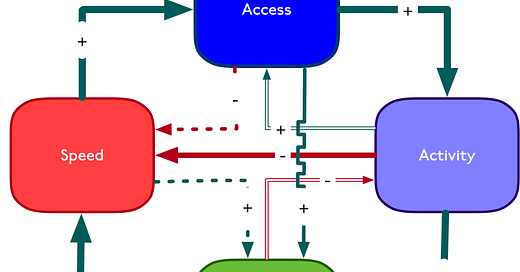Research
Wang, Y. and Levinson, D. (2023) Access-based land value appreciation for assessing project benefits. Journal of Transport and Land Use. 16(1), 469–496. [doi]
The traditional mobility-oriented travel-time saving benefit assessment method has been repeatedly questioned for numerous intrinsic flaws, motivating the search for alternative benefit assessment approaches. Although a wealth of literature confirms the capitalization effect of access benefits induced by transport improvements to land or real estate value, the access-based land value uplift method hasn’t yet been widely recognized and employed as an official tool assisting transport decision-making. The present paper collects 136 empirical studies and aims to disentangle the obstacles hindering the promotion of the access-based assessment method by systematically reviewing methodological design, the access metrics used, and the target real estate sub-markets or land use types upon which access benefits are quantified. First, it was found that almost half of the sampled studies just investigated the general effects of transport operation on real estate prices without incorporating sufficient temporal and locational considerations, thereby failing to isolate project-specific incremental impacts. Second, while the hedonic pricing model remains the most popular model, a trend towards embracing more advanced modelling techniques such as spatial lag, spatial error, and Difference-in-Differences (DID) models to control for bias caused by spatial dependence has been observed. Third, Euclidean distance and distance buffer rings are the most widely used operational measures of access. Primal access measures covering the number of opportunities available at a destination and travel impedance are recommended. Last, over 86% of sampled empirical studies target the residential real estate market. The lack of non-residential land uses in the literature presents a significant research gap that should be addressed.




